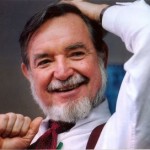The Dilemma of Meetings
By John McKnight
Co-Director, Asset Based Community Development Institute
from the John McKnight Learning Series
In many neighborhoods, local associations establish a schedule of meetings and the focus is on what should happen at that time. One of Saul Alinsky’s inviolable rules was “never meet to meet”. He knew that local associations “wear out” if they are a space in time that must be filled with something. Rather, he told organizers to have meetings when it was clear that there was something to be done so that the focus was on the substance rather than an agenda.
I’ve recently observed two alternatives to meeting-driven associations. The first we found in our study of associations in Spring Green, Wisconsin. It was interesting to note that most of the groups focused on environmental and conservation issues had large email lists. A small “idea” group at the center of the organization rarely called a meeting of the “email membership”. Instead, they used the internet for three activities that might have traditionally been communicated through meetings. The activities are:
- Alerting members to public policy issues where their advocacy could enhance the organizations purpose.
- Providing educational information that would enhance the knowledge of the members.
- To notify members of specific activities to be held at a certain time and place, frequently doing work to improve the environment at a particular site.
The second alternative involves the activities of our Asset Based Neighborhood Organizers. Their local Block Connector identifies capacities that residents want to contribute to the community’s well-being and the Connector joins these people together. Here, the organizational function is one of creating local groups without calling meetings.
The meeting issue at the local level is often a problem because they rarely keep a significant number of people involved. They become routinized and participants are only those with a huge tolerance for meetings.
It might be interesting to hold a learning exchange that examines the changing approaches to the functions of meetings.
This is the second article in a series of essays John McKnight wrote for the Kettering Foundation, and is reprinted here with permission. Photo by Samuel Zeller.





